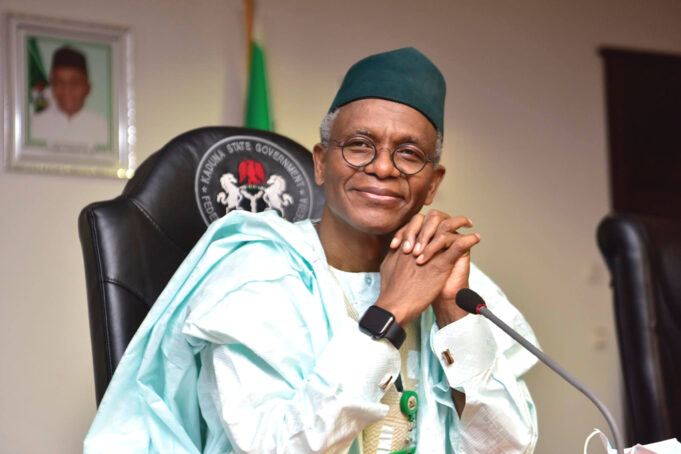Governor Nasir El-Rufai of Kaduna State has declared that if fuel subsidy is not removed, 35 out of the 36 states of the federation won’t be able to salaries of workers in 2022.
Against this backdrop, El-Rufai said governors are ready to support the Federal Government in the elimination of fuel subsidy regime.
El-Rufai spoke on Tuesday in Abuja, at the presentation of the World Bank Nigeria Development Update, November 2021 edition titled “Time for Business Unusual”.
El-Rufai, a panelist who joined virtually, said kerosene which matters most to the masses had been regulated without any hitches, while diesel which was most important to transporters had also been regulated for a long time.
“This hullabaloo about petrol is something that we must as a country have a conversation and agree that it has to end.
“We cannot continue to provide petroleum to our neighbouring countries, which is what we are doing.
“Why are we doing this? For whom are we doing it? Who is the beneficiary? Which is the cabal that is the beneficiary of this and why should they hold this country to ransom and bankrupt the Nigerian economy?
“Right now, we are losing N250 billion a month and this has to end. State governments are committed to supporting the Federal Government on this.
“We do our bit, engage stakeholders and put the facts on the table so that everyone understands the danger the country is in if the subsidy continues, as well as the benefits that will accrue.
“Not only to the budgets of the states and their capacity to deliver social services, but also what will go directly to the pockets of the poorest Nigerians that will bear the brunt of any withdrawal of subsidy.
“This is the position of the state governments and we met just a few days ago to take this position.”
El-Rufai said that the governors saw the dangers in continuing on the path of petroleum subsidy and support policy measures needed to improve the fiscal situation, such as price stability.
This, he said, was by ensuring that there was alignment of the exchange rate and good coordination between fiscal and monetary policy.
Minister of Finance, Budget and National Planning, Zainab Ahmed, had at the event said Nigeria will remove fuel subsidy by 2022 and substitute the subsidy with N5000-a-month transportation grant to the poorest Nigerians.
The minister said the grant will be distributed to about 30 to 40 million Nigerians who make up the poorest population of the country.
She said: “The subsidies regime in the oil sector remains unsustainable and economically disingenuous.
“Ahead of the target date of mid-2022 for the complete elimination of fuel subsidies, we are working with our partners on measures to cushion potential negative impact of the removal of the subsidies on the most vulnerable at the bottom 40% of the population.
“One of such measures would be to institute a monthly transport subsidy in the form of cash transfer of N5,000 to between 30 – 40 million deserving Nigerians.”
Mr. Shubham Chaudhuri, the World Bank Country Director, said even though Nigeria’s economy exited a pandemic-induced recession, several challenges persist including double-digit inflation, declining incomes, and rising insecurity.
- Prince Harry, Meghan arrive Nigeria, meet wounded soldiers - May 10, 2024
- 2030: World Bank, AfDB partner to connect 300m Africans to electricity - April 17, 2024
- UK Court fines Nigerian nurse over forgery of emergency health badge - March 4, 2024










